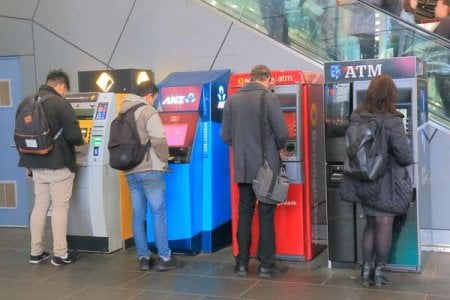Protect your savings: Here's a guide to spotting bank impersonation scams
By
Danielle F.
- Replies 43
In an age where technology has become an integral part of our daily lives, many Australians have embraced the convenience of online banking.
However, with this convenience comes a new breed of threat.
These new scams have been on the rise and are targeting unsuspecting individuals, which could lead to significant financial losses.
According to the Australian Competition and Consumer Commission (ACCC), bank impersonation scams led to about $11 million in losses across Australia within the first nine months of 2023.
Additional statistics stated that customers over 55 are vulnerable targets—accounting for 56 per cent of total losses to impersonation scams,
This data highlighted the need for increased vigilance for these schemes, especially among seniors.
So, how do these scams work, and what can you do to protect yourself?
Bank impersonation scams involve criminals contacting potential victims via phone, email, or messaging services, pretending to be from a legitimate bank.
They often claim to be from the bank's fraud department, alerting customers about a compromised account or suspicious transaction.
Their goal is to trick customers into sharing personal or financial information, which they can then use to steal money.
Troy Hunt, the founder of the data breach service Have I Been Pwned, warned that bank impersonators target anyone who responds to them.
They could also tag specific individuals as 'more valuable' due to their access to sensitive financial information.
These fraudulent communications could be convincing as they use advanced technology to mimic legitimate bank contacts.
However, here are some telltale signs customers can watch out for:
Unsolicited contact: Be wary of any unexpected calls or messages from anyone claiming to be from your bank—especially if they request personal information.
Verification: Always verify the authenticity of the contact by reaching out to your bank's official channels, such as information on their website or bank statements.
Request for sensitive information: Banks will never ask for online banking passwords, one-time security codes, PINs, or tokens over the phone.
Suspicious caller or sender IDs: Look out for slight variations in the details, such as unusual dots, special characters, or numbers that don't match the bank's official contact information.
If you suspect a bank impersonation scam has targeted you, take the following steps:
If you've fallen victim to a scam:

Have you or someone you know encountered a bank impersonation scam? How did you deal with it? Share your experiences in the comments section below to help prevent these scams.
However, with this convenience comes a new breed of threat.
These new scams have been on the rise and are targeting unsuspecting individuals, which could lead to significant financial losses.
According to the Australian Competition and Consumer Commission (ACCC), bank impersonation scams led to about $11 million in losses across Australia within the first nine months of 2023.
Additional statistics stated that customers over 55 are vulnerable targets—accounting for 56 per cent of total losses to impersonation scams,
This data highlighted the need for increased vigilance for these schemes, especially among seniors.
So, how do these scams work, and what can you do to protect yourself?
Bank impersonation scams involve criminals contacting potential victims via phone, email, or messaging services, pretending to be from a legitimate bank.
They often claim to be from the bank's fraud department, alerting customers about a compromised account or suspicious transaction.
Their goal is to trick customers into sharing personal or financial information, which they can then use to steal money.
Troy Hunt, the founder of the data breach service Have I Been Pwned, warned that bank impersonators target anyone who responds to them.
They could also tag specific individuals as 'more valuable' due to their access to sensitive financial information.
These fraudulent communications could be convincing as they use advanced technology to mimic legitimate bank contacts.
However, here are some telltale signs customers can watch out for:
Unsolicited contact: Be wary of any unexpected calls or messages from anyone claiming to be from your bank—especially if they request personal information.
Verification: Always verify the authenticity of the contact by reaching out to your bank's official channels, such as information on their website or bank statements.
Request for sensitive information: Banks will never ask for online banking passwords, one-time security codes, PINs, or tokens over the phone.
Suspicious caller or sender IDs: Look out for slight variations in the details, such as unusual dots, special characters, or numbers that don't match the bank's official contact information.
If you suspect a bank impersonation scam has targeted you, take the following steps:
- Hang up immediately if you receive a suspicious call.
- Do not authorise any bank transfers or share personal or financial information.
- Avoid clicking on any links provided in suspicious emails or messages.
- Implement preventive measures such as using a password manager, setting up multi-factor authentication, and monitoring your credit.
If you've fallen victim to a scam:
- Contact your bank immediately to report the fraud and stop any transactions.
- Change passwords on all your devices and online accounts.
- If your personal information has been compromised, reach out to IDCARE at 1800 595 160 for support.
- Report the incident to Scamwatch to help protect others from falling prey to similar scams.
Key Takeaways
- Bank impersonation scams—where criminals pretend to be bank workers to steal personal and financial information—have increased in Australia.
- The Australian Competition and Consumer Commission (ACCC) reported about $11 million in losses to such scams last year, with citizens over 55 being particularly affected.
- Scamwatch advised that banks will never ask for online banking passwords, one-time security codes, PINs, or tokens over the phone.
- Suspicious transactions should be reported to the customer's bank, Scamwatch. Compromised personal information should also be reported to IDCARE.








